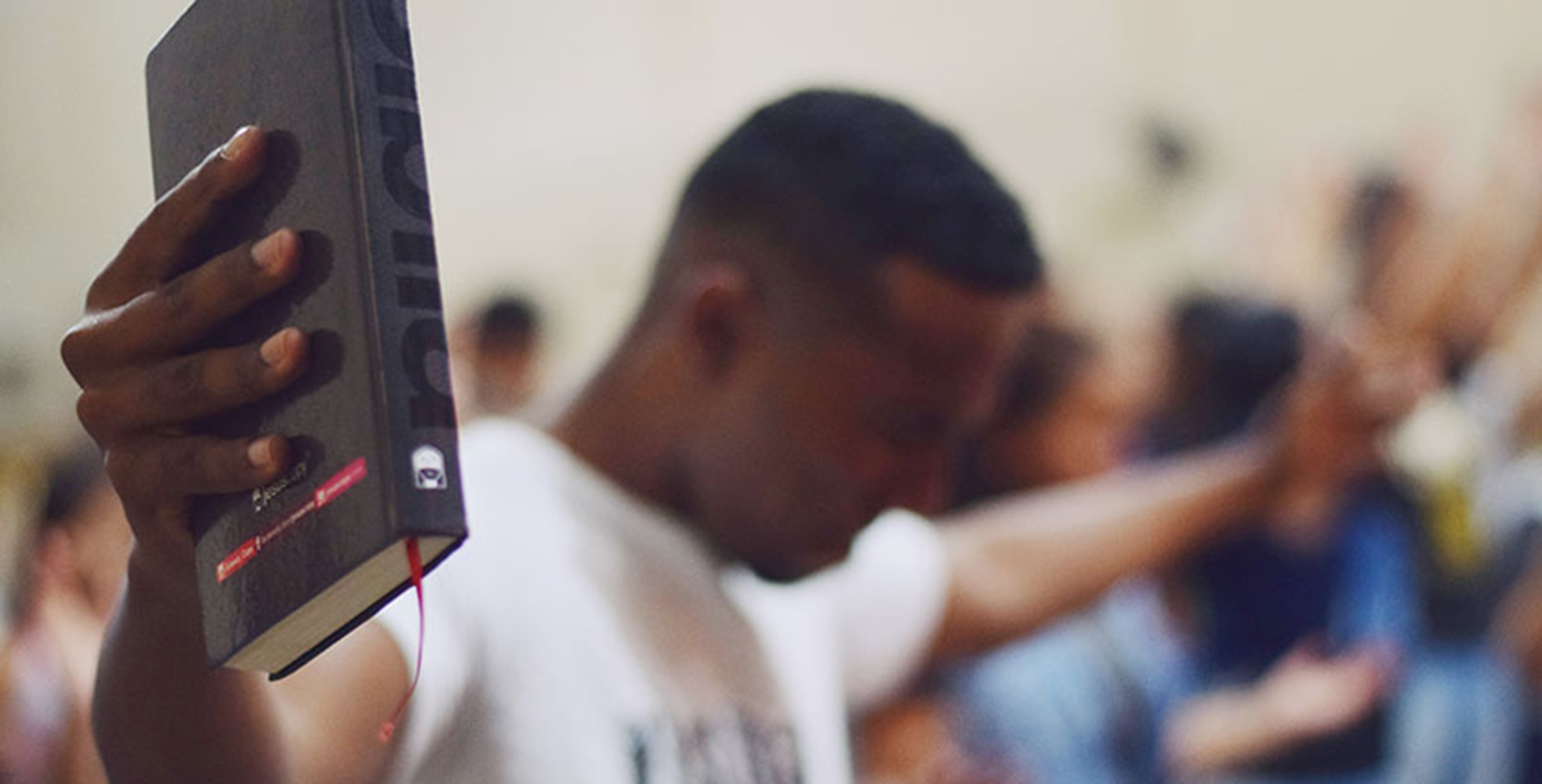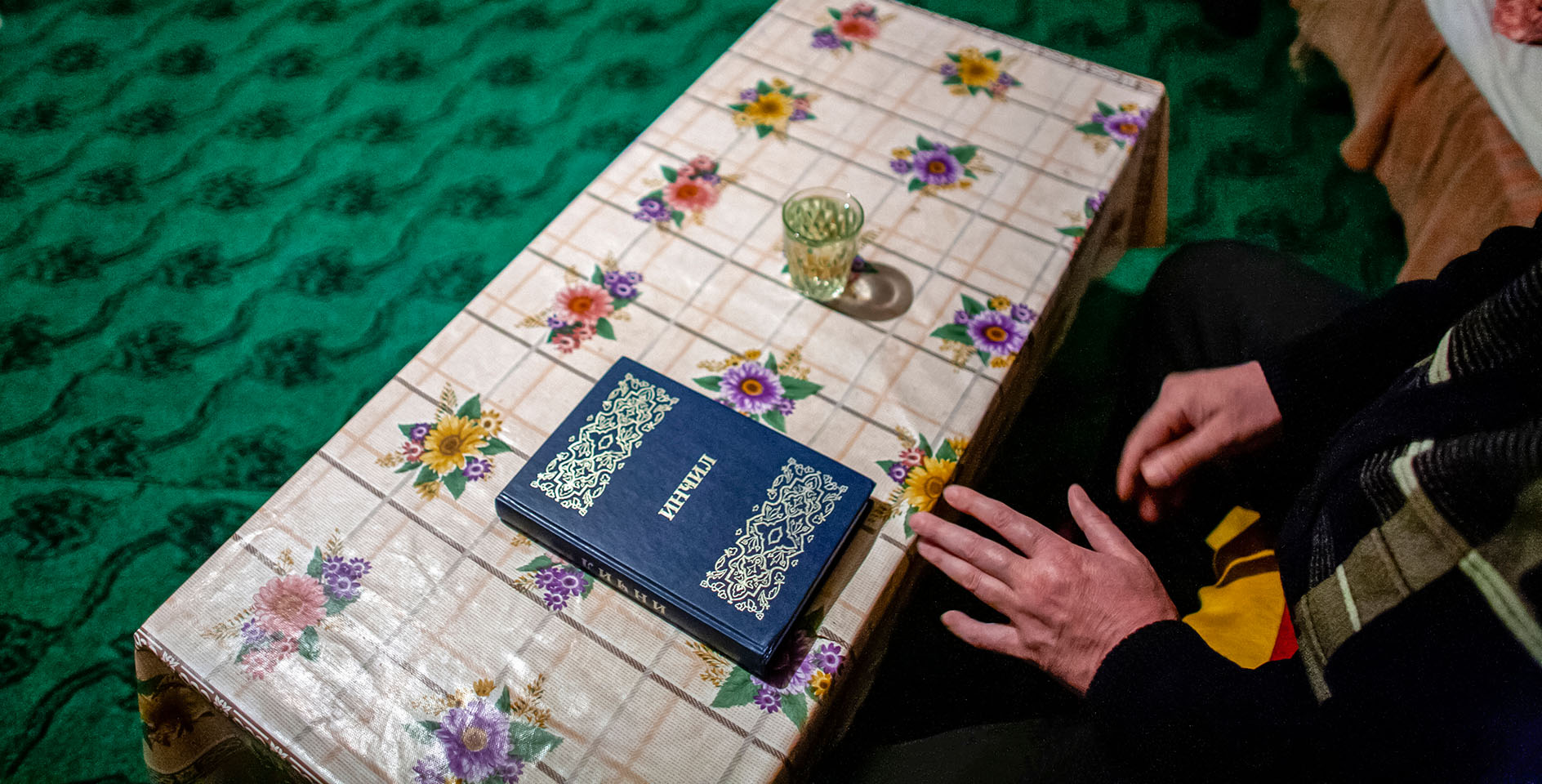Jon Kelly was a troubled teen growing up with a single mother in a rough Philadelphia neighborhood. Multiple schools couldn’t keep him out of trouble. He dropped out of school by ninth grade.
“I was always high every day … always in fights, always getting shot at or shooting at somebody,” Jon says. “I for sure did not think I would make it past 16.”
Jon remembers the day he was arrested. He had just turned 19 two months before. He was taken to jail for his role in a murder.
A couple officers in the jail would talk to him from time to time. That first week, Jon was so bored that he asked if either of them could bring him something to read. The officers handed him a copy of the New Testament. On the cover were the words, “There’s hope for you. Jesus cares.”
“I read God’s Word for the first time,” Jon says, “and I haven’t been the same since.”
A change of heart
Jon had not yet gone to court when he surrendered his life to Jesus. His lawyer didn’t believe he was serious about his newfound faith, dismissing it as “jailhouse religion.” Even so, Jon knew what he had to do.
“Part of being a Christian is repenting and taking ownership of your sins,” Jon told his lawyer. “I would like to plead guilty.”
Jon pled guilty to third-degree murder, a crime that usually carries a sentence of 20–40 years in prison. Standing in court before the victim’s family, Jon asked for forgiveness. Then he apologized to the judge
for wasting the court’s time and taxpayers’ money. Jon also said that he would respect his sentence—no matter what it was.
“It didn’t matter that [the victim] was supposedly a drug dealer,” Jon explains. “At the end of the day, he was a young man made in the image of God who didn’t deserve to die.”
Miraculously, the judge sentenced Jon to 6–15 years in prison, with five years of probation.
A fresh start
In prison, he made the most of his time by taking classes and earning his GED. When Jon was released on parole, he stepped out into a world that is overwhelming for many former prisoners. He needed a place to live, a job, and a community of friends who would support him.
So Jon moved back in with his mother, who was living in a safer neighborhood. He found a local church, where he met a new circle of friends who welcomed him in and cared for him. He even managed to find
a job as a painter his first week out.
Today, Jon serves as the pastor of Chicago West Bible Church, a church he helped start. He’s married and has two children. “It’s been an amazing journey, and I praise God for that,” Jon says.
But it’s also been a tough one. Although he completed his sentence and is now a valuable contributor in his community, Jon’s criminal record follows him. With his record comes the legal restrictions on housing, employment, education, and more, called collateral consequences, that limit his opportunities to thrive. This is why Jon is passionate about second chances, and why he devotes some of his time to working with Prison Fellowship to mobilize churches to restore those impacted by crime and incarceration through direct ministry and advocacy.
Celebrating second chances
As part of that work, he and his church host a Second Chance Sunday every April—a special service designed to raise awareness about the stigma and barriers people with a criminal record face and inspire the church to be a place of welcome. This effort is part of Second Chance® Month, the
nationwide campaign led by Prison Fellowship to raise awareness about the barriers faced by men and women with a criminal record. Jon explains what the service is like:
I preach a message that’s related to this topic and this issue. We highlight different second chance ministries, organizations, and resources in our city and around the country that people in our church can get connected to. We allow our congregation to share their stories about how second chances impact them or their loved ones.
Jon says his church hosts this special service because “We believe that every man and woman, every individual, regardless of if they have a criminal record or not, has been created in God’s image and is worthy of dignity and respect and opportunity.”
And the annual observance of Second Chance Month, celebrated every April, is making an impact. “Second Chance Sundays have been huge for our church. It’s created a culture in which everyone feels free to truly embrace one another in Christ, as he designed us to be.”
Host your own Second Chance Sunday
Jon encourages pastors and church leaders to host their own Second Chance Sunday services. But you don’t need to reinvent the wheel.
Jon recommends that churches take advantage of Prison Fellowship’s Second Chance Sunday Church Toolkit, available online for free. “In this toolkit, there are sermon ideas, small group discussions, coloring books for children, all types of statistics and current data. I encourage you to sign up as soon as you can for that Second Chance Sunday Church Toolkit.”










